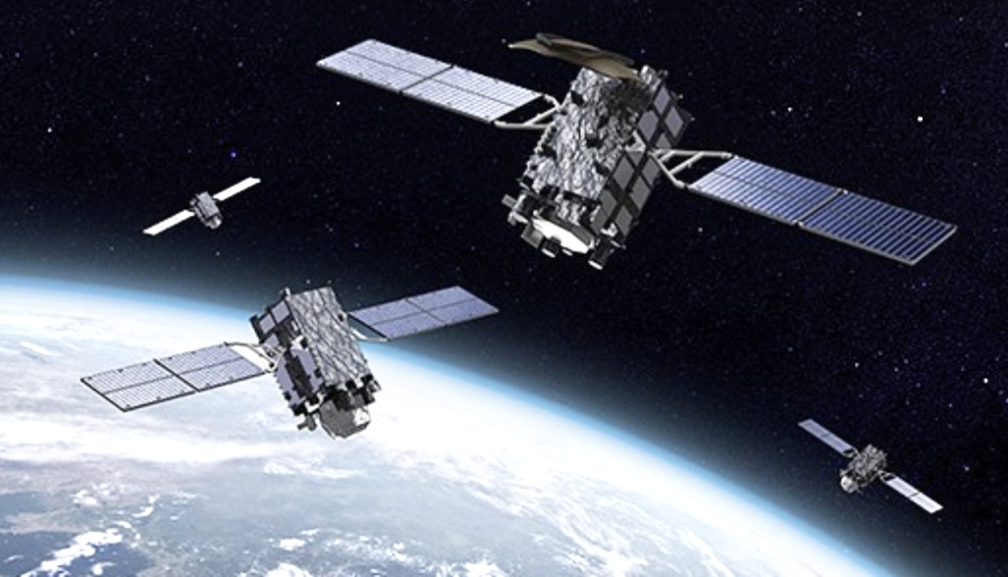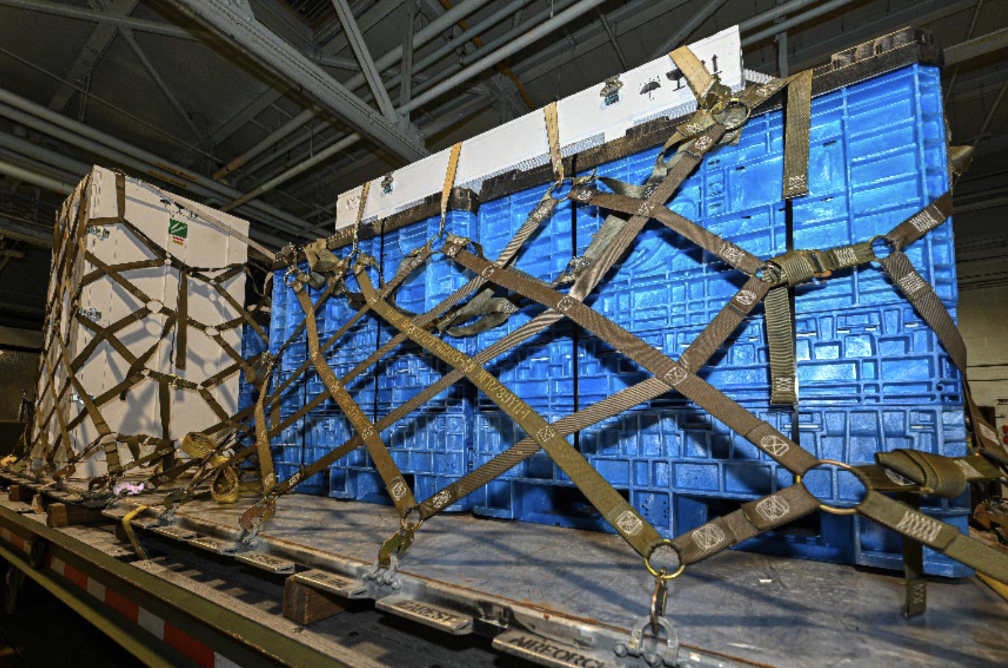
credit MIT/LL)
Space Systems Command’s (SSC) Space Domain Awareness & Combat Power (SDACP) Directorate has delivered the first of two payloads to Japan, placing the United States and Japan one step closer to the launch of two, U.S.-hosted payloads on Japan’s GEO-based Quasi-Zenith Satellite System (QZSS).

The payload deliveries follow the historic Memorandum of Understanding (MoU) signed two years ago between Japan’s National Space Policy Secretariat (NSPS) and the U.S. Space Force.
The QZSS-HP program demonstrates a shared commitment to increase space partnerships in alignment with both allies’ national space policies, central to the U.S. Space Force’s priority of expanding cooperation to contribute to integrated deterrence and international security. The QZSS-HP mission has been supported by SSC since its inception in 2018 as a rapid acquisition and pacesetting partnership effort with Japan.
As the payloads arrive in Japan, the program will then begin the next stage of integration to the two QZSS host satellites and to prepare for launch. The two launches will expand the QZSS constellation to a total of seven.

On the U.S. side, Massachusetts Institute of Technology Lincoln Laboratories (MIT/LL) is the prime payload developer for QZSS-HP. MIT/LL and SSC have led the development from a concept in 2018 to ready to deliver hardware in 2023. In the next phase, MIT/LL and USSF personnel will mobilize to Japan to support the integration and test efforts with their Japanese partners until completion of the launch of both QZSS host satellites.
QZSS-HP’s mission as a pacesetting partnership with Japan is not complete, but the development, test, and delivery of the first hosted payload demonstrates exactly the kind of partnership spirit needed for the Space Force to set the stage for future success.

Logistics Readiness Squadron facility at Hanscom Air Force Base, Mass., Jan. 5, 2023. (U.S. Air Force
photo by Todd Maki)
“This delivery of the first spaceflight-ready payload represents an important milestone for QZSS-HP. While a lot of work remains, I’m happy to report that we’re on track to meet our commitments,” said Lt. Col. Brian Fredrickson, program manager and representative of SDACP’s Space Domain Awareness Delta. “QZSS-HP has benefited tremendously from being categorized as a prototype, as it has enabled the program to be responsive and move with speed.”
“We’ve worked hard to move from concept and requirements development through the design phase, and into assembly, integration, and test of the two hosted payloads very quickly. We’re excited for our next steps and to work with our Japanese partners,” said Capt. Alex Woodard, deputy program manager.
“This is an exciting and important mission,” said 1st Lt. Joe Santiago, QZSS-HP’s logistics & security lead, adding that the delivery would not be possible without Space Force’s partnership with Air Mobility Command to secure safe transit from Hanscom Air Force Base’s 66th Air Base Wing in Massachusetts to Yokota Air Base’s 374th Airlift Wing in Japan. “QZSS-HP’s success depends on the contributions of a number of mission partners on the US side, including our partners at Yokota and Hanscom.”
2nd Lt. Danielle Katz, the program’s ground lead, added, “QZSS-HP is also making great strides in proving out the end-to-end connectivity with Japan to support on-orbit testing and operations.”
Space Systems Command is the U.S. Space Force’s field command responsible for acquiring and delivering resilient war fighting capabilities to protect our nation’s strategic advantage in and from space. SSC manages an $11 billion space acquisition budget for the Department of Defense and works in partnership with joint forces, industry, government agencies, academic and allied organizations to accelerate innovation and outpace emerging threats. Our actions today are making the world a better space for tomorrow.
